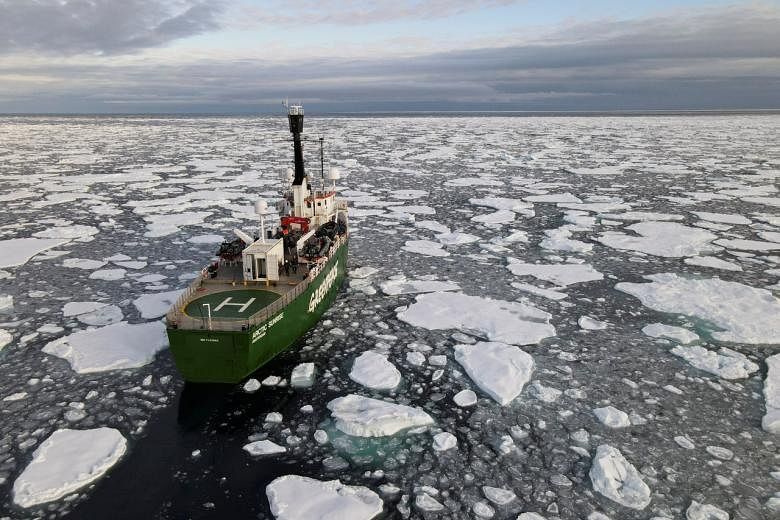AMSTERDAM • The United States marked its return to the global fight against climate change yesterday by joining high-level talks on ways to better protect people and economies from the effects of global warming already taking place.
Less than a week after President Joe Biden announced the return of the US to the 2015 Paris Climate Agreement, his special climate envoy, Mr John Kerry, was due to join China's Deputy Prime Minister Han Zheng, German Chancellor Angela Merkel, French President Emmanuel Macron, British Prime Minister Boris Johnson and other leaders at a Climate Adaptation Summit.
The online event, hosted by the Netherlands, aims to set out practical solutions and plans for dealing with climate change in the period until 2030.
Ahead of the summit, more than 3,000 scientists from across the world pressed leaders to better protect people from the fallout of global warming.
"Our fast-warming world is already experiencing major disruptions from more intense droughts, fires, heat waves, floods, destructive tropical cyclones and other extreme events," the scientists, including five Nobel laureates, said in a statement.
"Unless we step up and adapt now, the results will be increasing poverty, water shortages, agricultural losses and soaring levels of migration with an enormous toll on human life."
Climate change could depress global food production by up to 30 per cent, while rising seas and greater storms could force hundreds of millions in coastal cities out of their homes, summit organiser the Global Centre on Adaptation (GCA) said.
"There is no vaccine for climate change", GCA chair and former United Nations secretary-general Ban Ki-moon told reporters on the eve of the event.
He said: "It is happening much, much faster than we think, causing cascading risks and impact. Building resilience to climate change is not nice to have, it is a must have."
Underscoring the threat, especially to low-lying island nations and coastal cities, the Earth's ice is melting faster today than in the mid-1990s, new research suggests, as climate change nudges global temperatures ever higher.
Altogether, an estimated 28 trillion tonnes of ice have melted away from the world's sea ice, ice sheets and glaciers since the mid-1990s.
Annually, the melt rate is now about 57 per cent faster than it was three decades ago, scientists report in a study published yesterday in the journal The Cryosphere.
"It was a surprise to see such a large increase in just 30 years," said study co-author Thomas Slater, a glaciologist at Leeds University in Britain.
REUTERS

